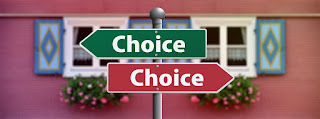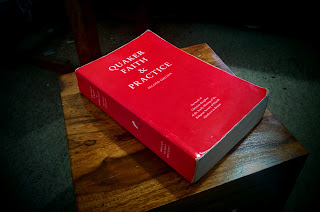I look to the future of the Society of Friends. I
see a thriving community of faith, where a great range of experience,
of thought, of ideas are share. I see all celebrating the experience
of each other, expressed authentically in the terms that fit that
experience. I see each offering received in the sense in which it is
offered, and difference a source of joy, celebration, and learning. I
see a force for good in the world, speaking truth to power, uplifting
the downtrodden and including the excluded. A voice in the wilderness
crying out and being heard.
But I also see a community divided and dwindling,
self-righteous, homogeneous and ageing. I see Friends become enemies,
jealously guarding their own conceptions and sure of the superiority
of their experience. A Society consumed more with its inward
concerns, having been consumed by its inward turmoil. A Society that
still cares for the outer world, but robbed of the power to speak to
it, to act in it effectively. A voice in the wilderness muted and
forgotten.
No future is real until it is reached, and thus
both of these future lie before us now. Our Religious Society strides
on, not knowing where it will reach; a hundred small decisions will
bring us to the future we choose, even if that choice is made
blindly.
For as I see these futures, as clear views of
hilltops in the distance, I cannot see the streams and forests and
valleys between where we are now, and where we might be. Yet setting
our sights upon the future we would reach, and listening to the
promptings of love and truth in our hearts, we may find our way to
the future we desire. Trusting in that which guides us, and in our
fellow travellers, we may together reach a fruitful destination.
Distrust and contention are natural, and unavoidable, yet I feel in
my heart that it is those that will, unchecked and unmanaged, lead us
to the future we would choose to avoid.
Written October 2017






























